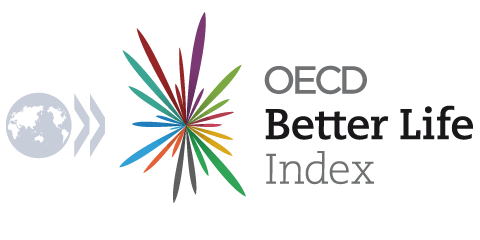In search of satisfaction
By Sue Kendall-Bilicki, OECD
The Rolling Stones’ song “I can’t get no satisfaction” provides a personal litany of things failing to make the singer happy, from the colour of his shirt to the quality of information being provided by the media. But is satisfaction really what we are looking for in the 21st century? The answer is yes, judging by the personal choices that show up on the OECD Better Life Index (BLI).
Life Satisfaction has been the topic ranked as most important for a better life by users since the BLI was launched in 2011, followed by health and education. This still holds true today, when the BLI has had 2.2 million visitors, from all over the world – some 196 countries – so the coverage is truly global.
“The more indexes we receive, the better able we are to contribute to drivers of individual and collective well-being”, Anthony Gooch, Director of Public Affairs and Communications at the OECD said at the 2013 launch of an updated BLI on May 28. During the two-day OECD forum on “Jobs, Equality, Trust”, nearly a quarter of a million people people visited the BLI website and the OECD has now received feedback based on nearly 38 000 surveys.
These choices of what matters to people for a better life may seem self-evident, but the BLI makes it possible to ask people directly what matters most to them out of a list of 11 topics, ranging from life satisfaction to income, from health to housing and from jobs to the environment.
Of course there are also individual differences – while civic engagement is among the lower priorities for users everywhere, those in Mexico, Chile and Spain rank it higher than people in most other countries. Sense of community matters a lot to users in France, while housing is of particular concern to those in Russia, judging by their BLI choices.
Do we trust our governments, or have we lost faith in the political system? Voting rates, part of the BLI civic engagement indicator, can help provide the answer. And just how unequal are our societies? Widening Income inequality is just one part of the picture, as the BLI shows with its tracking of inequalities in areas such as health, access to education or housing.
There is little difference in what is important in life to women and men, although women are more concerned about community, health and work-life balance, while men place more importance than women on income when it comes to defining what makes for a better life.
Perhaps not surprisingly, health tends to matter more to people as they get older, while concerns about work-life balance fade.
If you want to see what scores highest in your home country, or in another country, take a look at the interactive chart embedded in this article. And if you want to see who is online right now around the world creating their own Better Life Index, check out the realtime interactive map here.
All these choices can help policy makers see what matters to citizens, and could be one factor in deciding on policy priorities. Already some governments are creating their own similar indexes, and local communities are creating their own better life measures.
Economic growth does not exist in a vacuum; its purpose is to improve people’s wellbeing. Instruments such as the OECD Better Life Index, part of the OECD Better Life Initiative, and similar projects in many countries around the world reflect the need for a better way to capture what matters to people – from education and health to a nice home and a good job. The annual update of the Better Life Index during OECD Week 2013 showed again that beyond statistics, the same priorities remain: life satisfaction, health and education still rank highest!

Comments